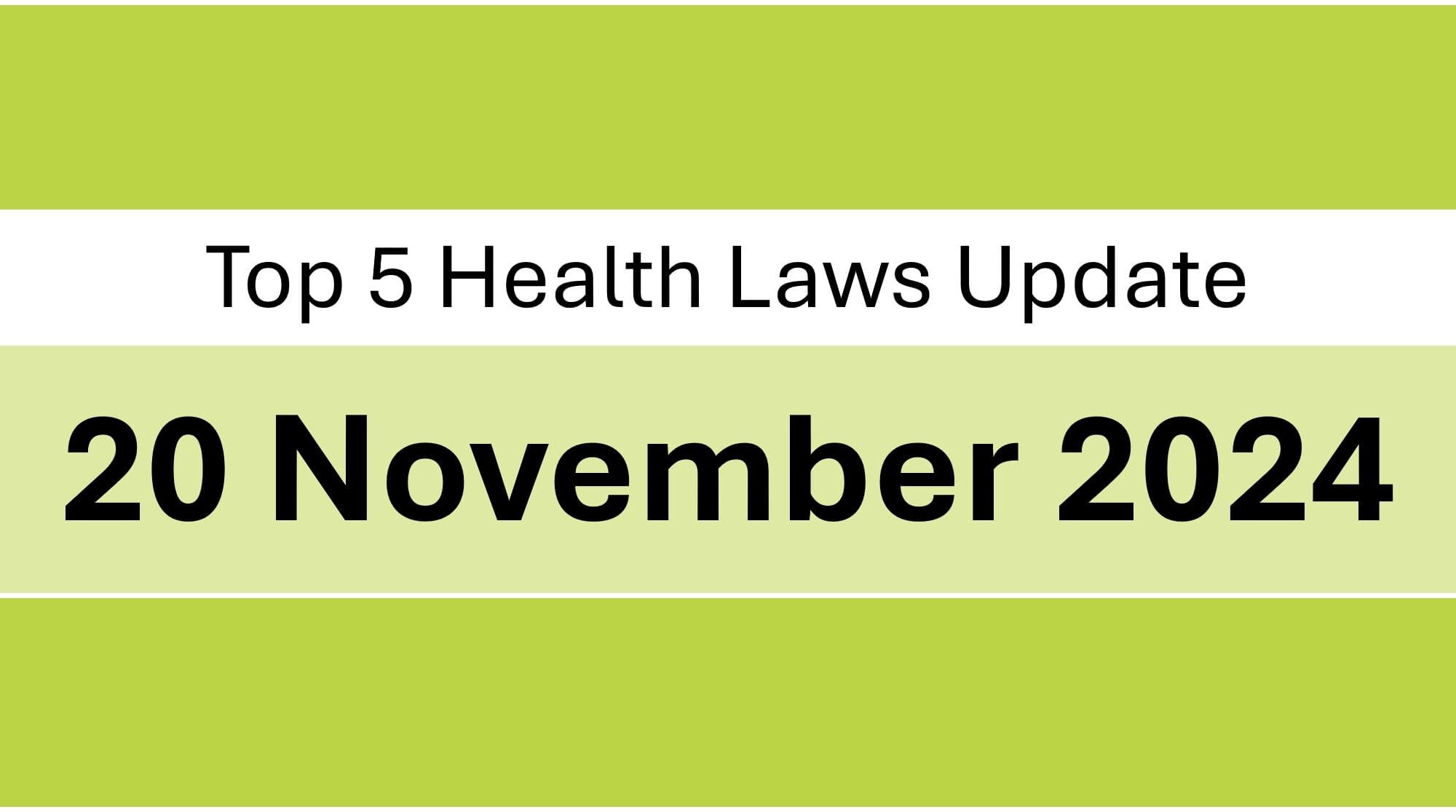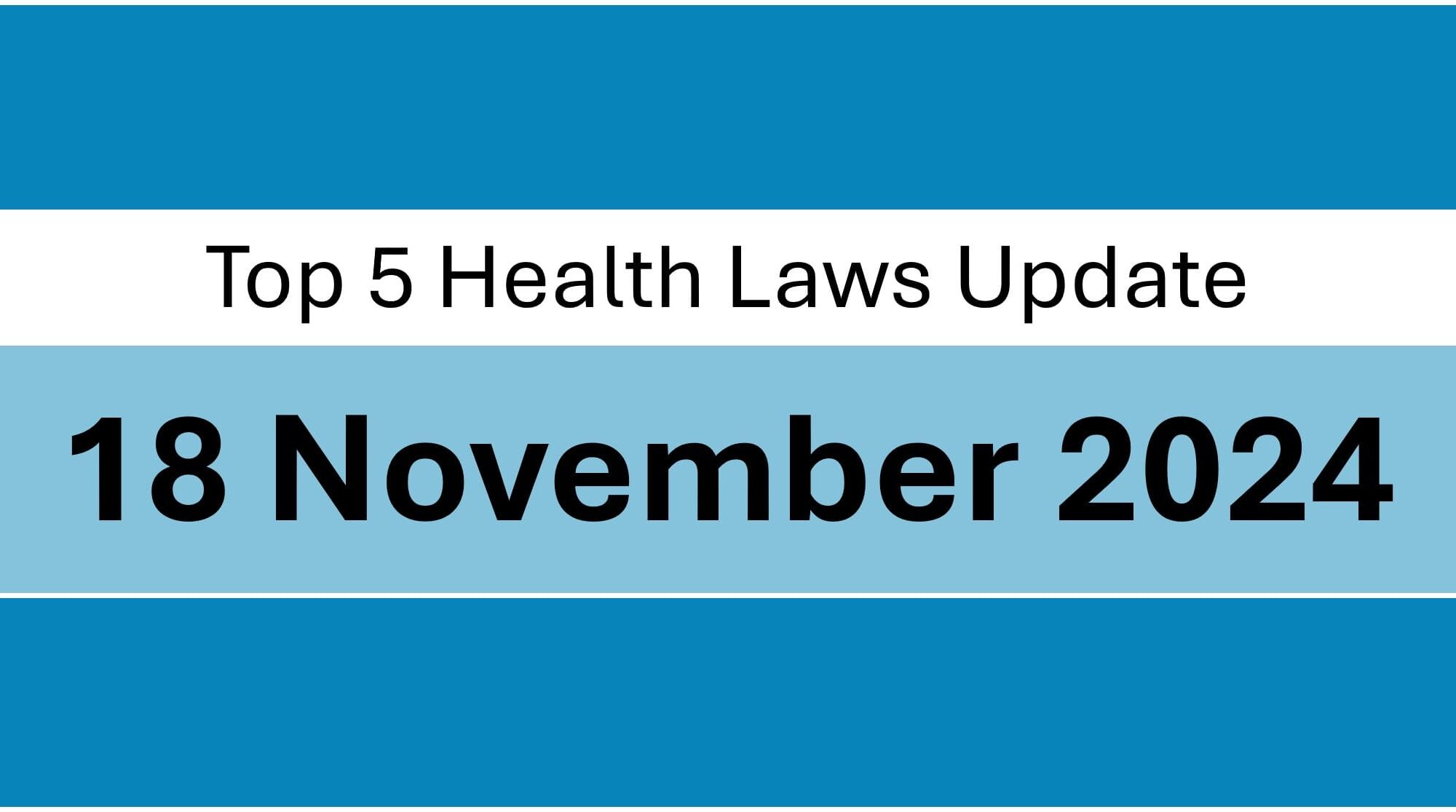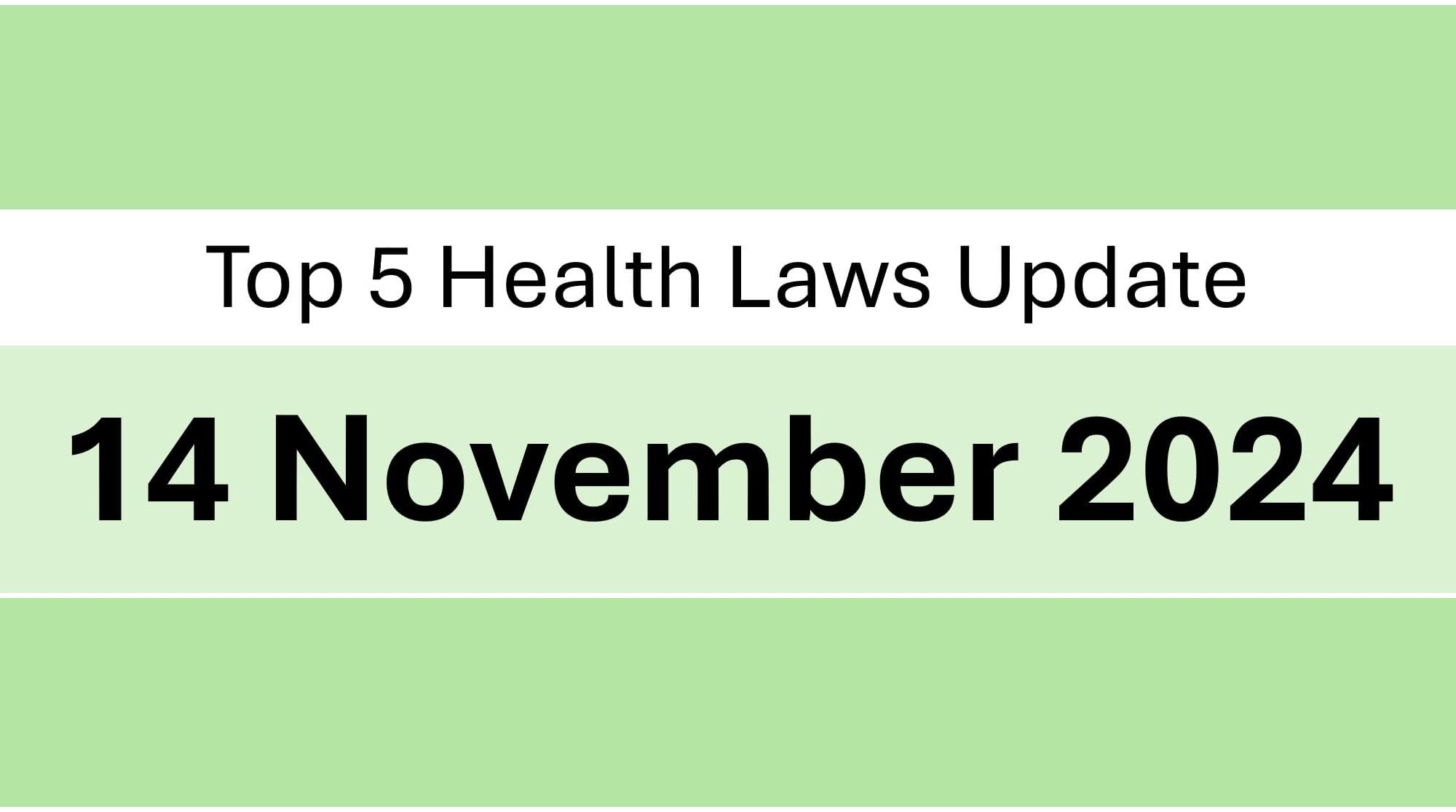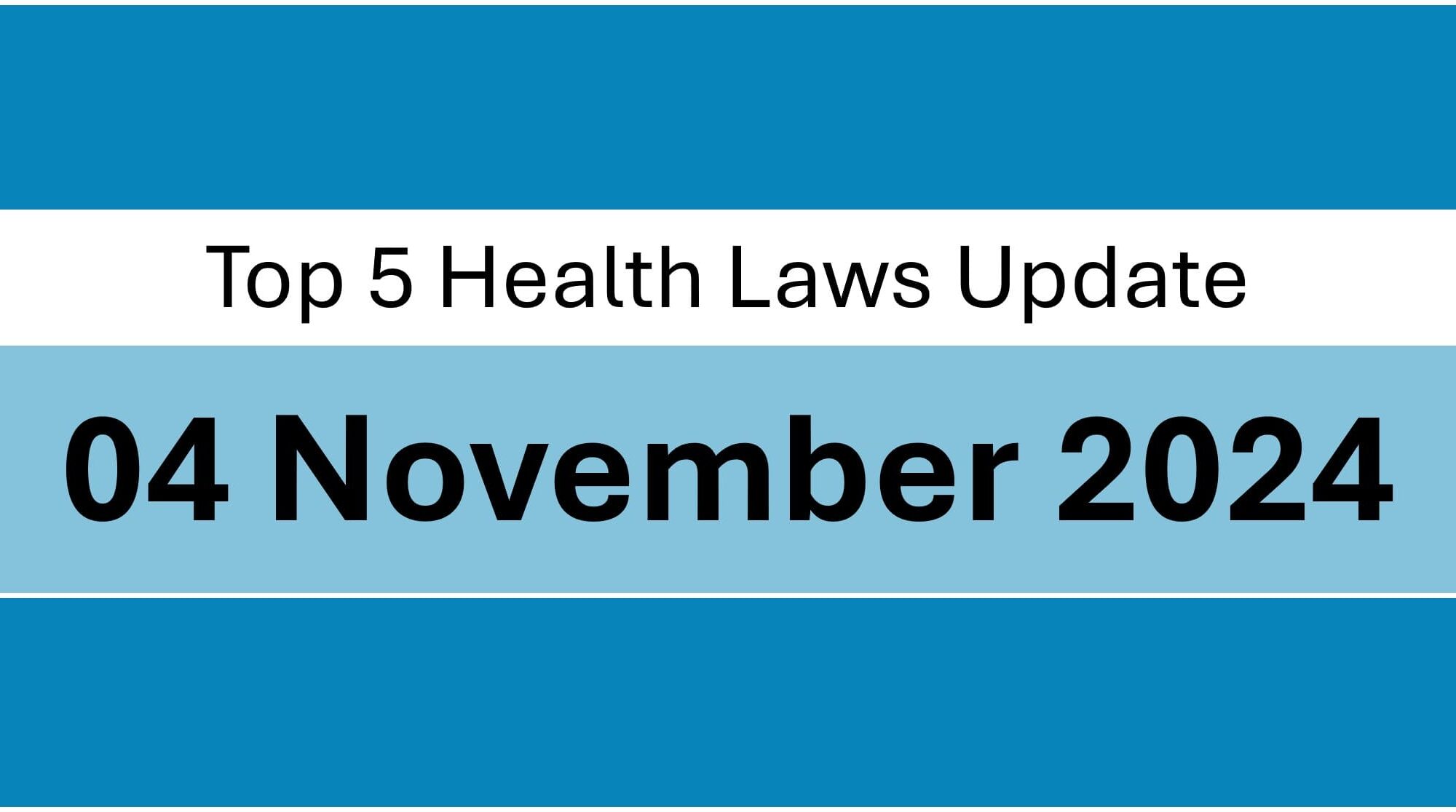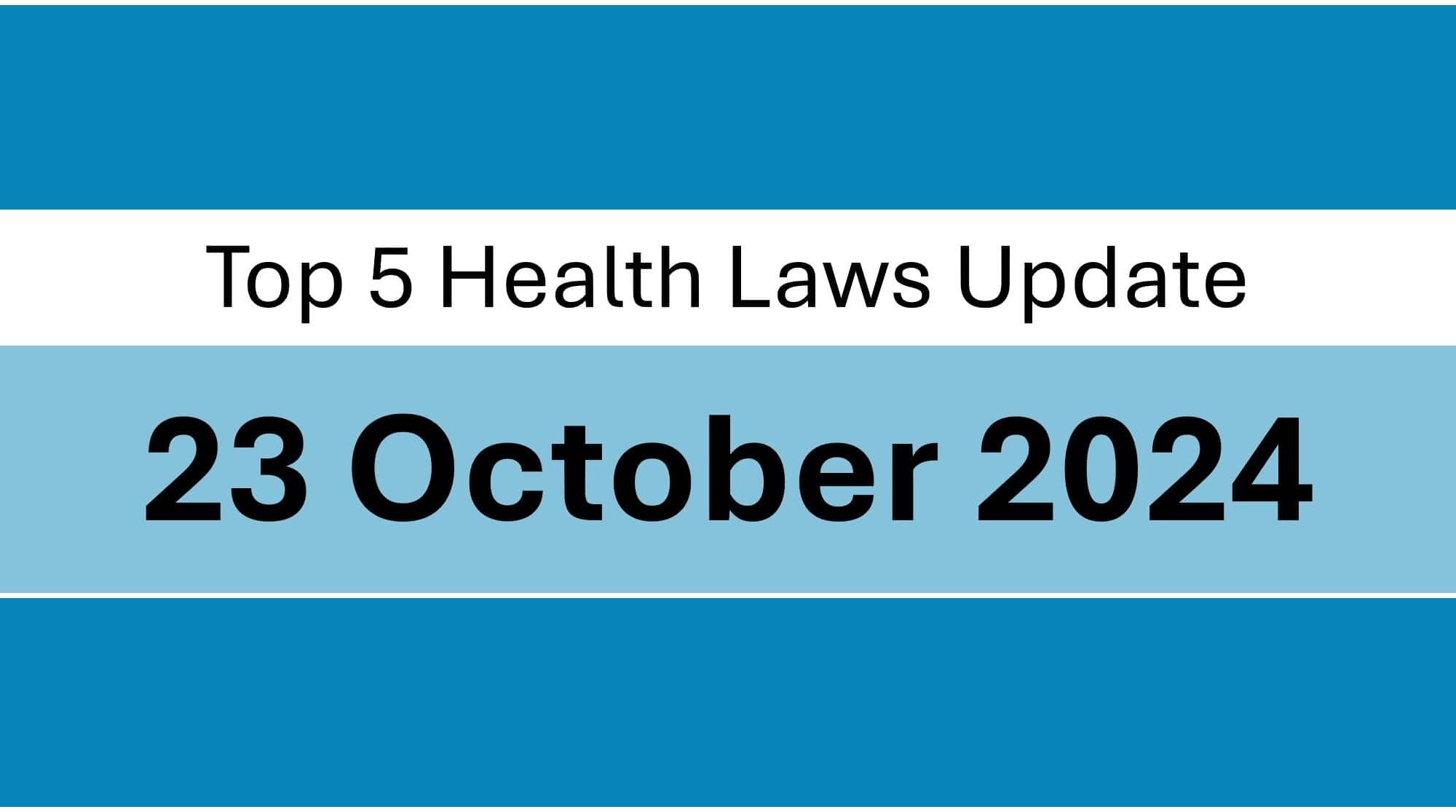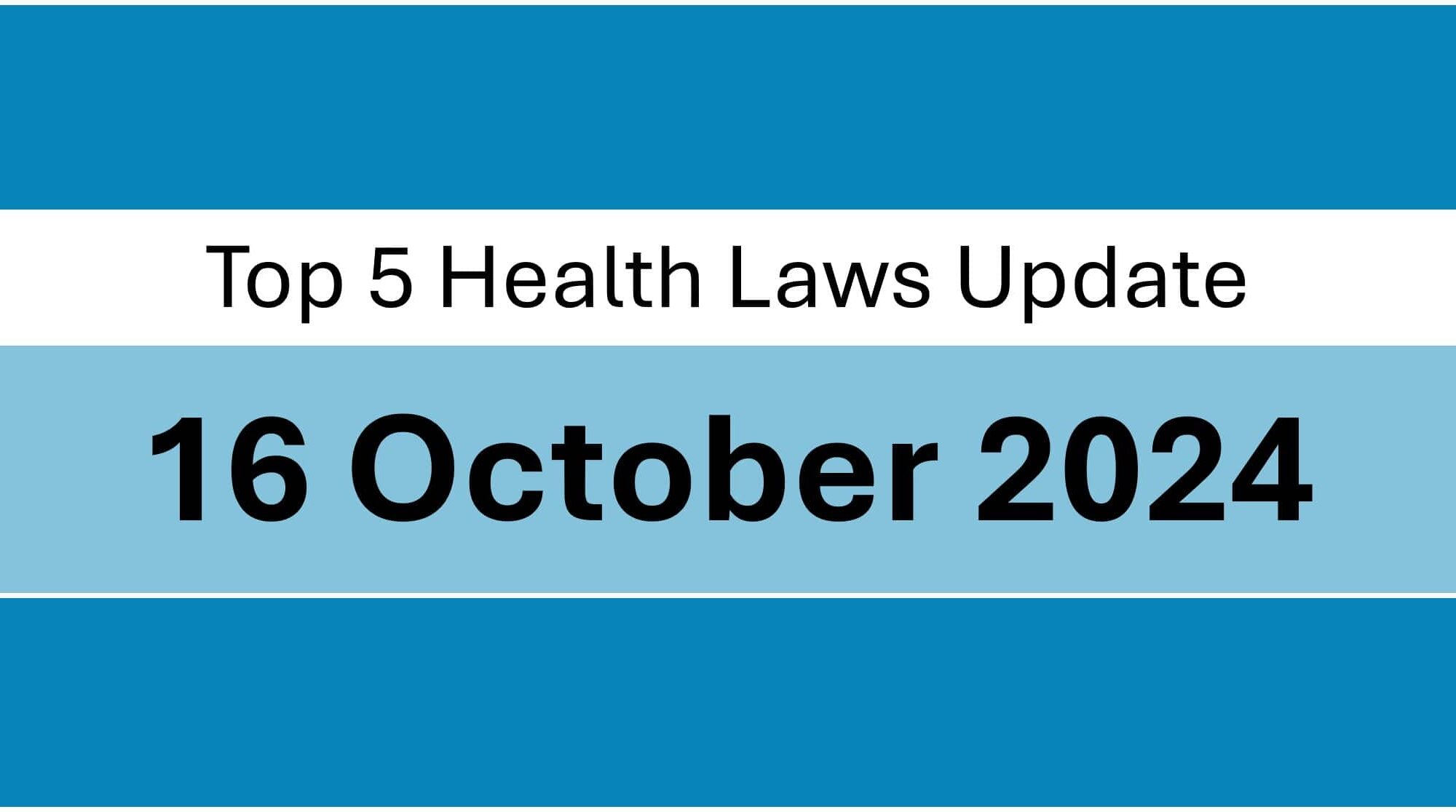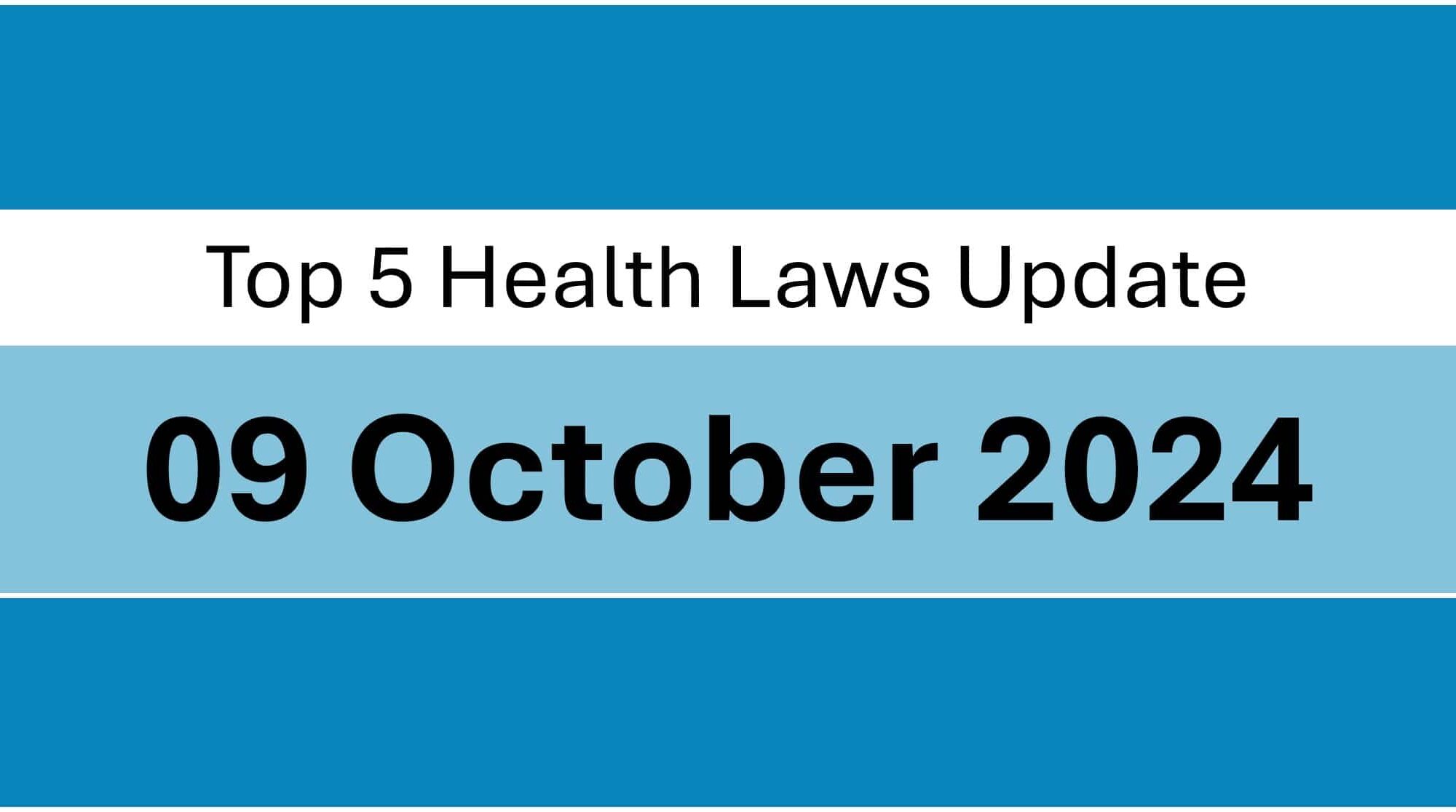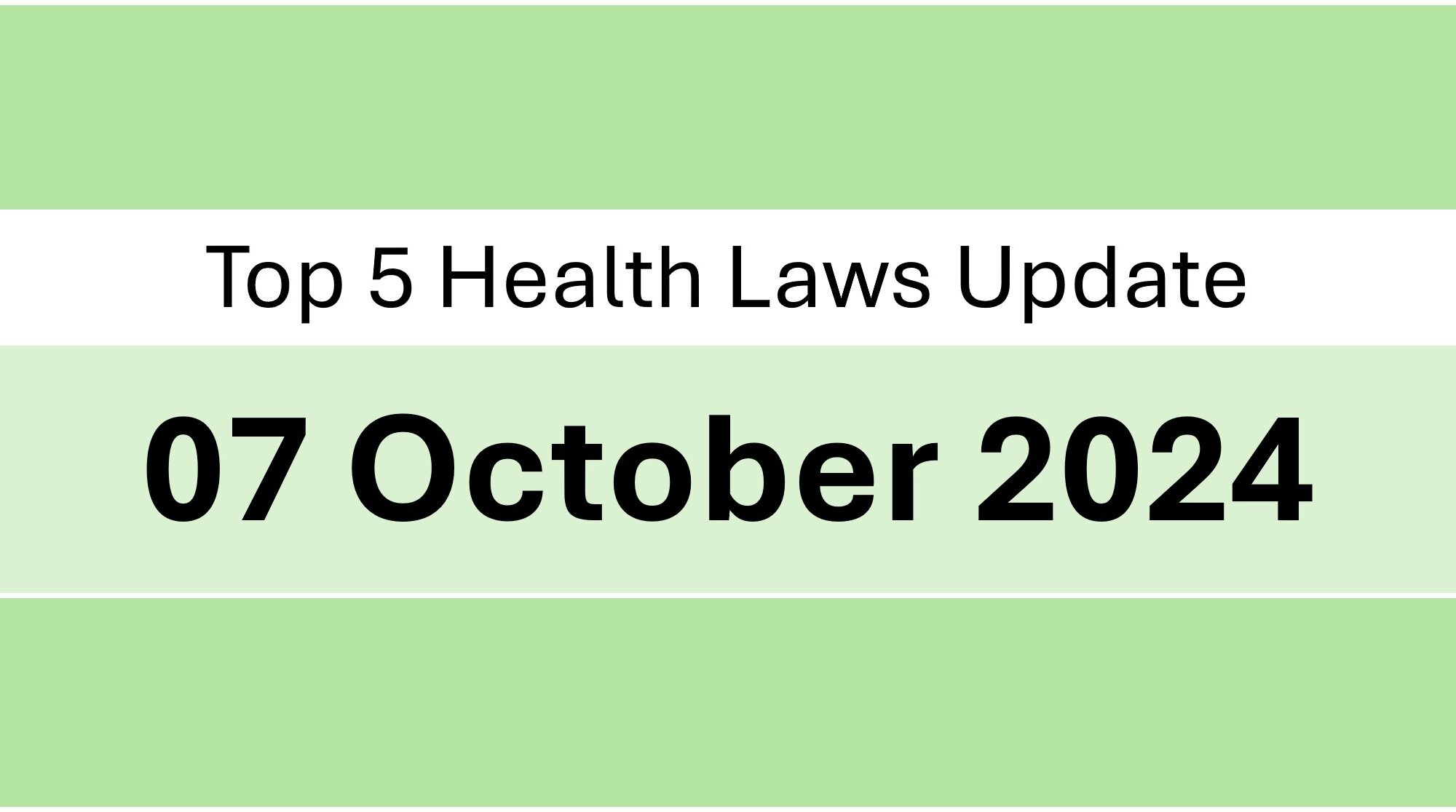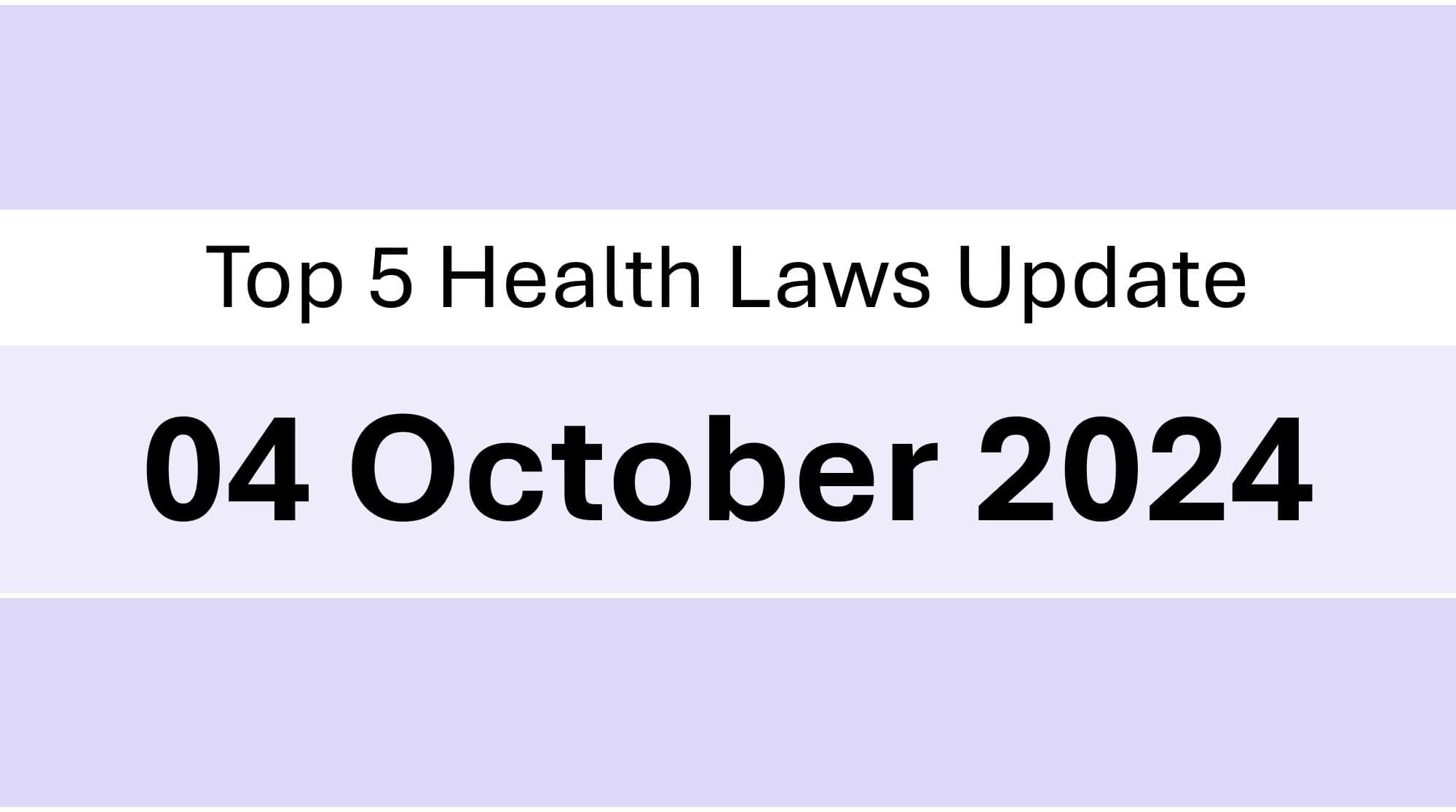Dear Readers, we are happy to share the most interesting legal and policy updates concerning health industry that we read today. we hope you enjoy reading it.
1. A State Consumer Disputes Redressal Commission (SCDRC), Punjab has exonerated a private eye hospital from medical negligence allegations, finding no evidence that surgery was performed on the patient. The commission ruled that the claims were unfounded, thus dismissing the case against the hospital with no liability for damages.
Source: bit.ly/499Wxr0
2. The Delhi High Court has requested that the government create clear guidelines regarding doctors’ digital signatures on medical documents in order to reduce the use of unauthorized and fraudulent signatures in medical practices and to make clear the legal and regulatory implications of using digital signatures in healthcare.
Source: bit.ly/3YWXD4A
3. India’s Finance Minister, Nirmala Sitharaman has proposed to establish the creation of Bharat Food and Drug Administration (BFDA) to set global benchmarks for food and drug safety, similar to the US FDA. The emphasis to create such standard is to enhance India’s regulatory framework and strengthen its position in the global market.
Source: bit.ly/3V9E7Rb
4. The Indian government plans to amend the Drugs and Cosmetics Rules, 1945 to allow State Licensing Authorities (SLAs) and the Central Licensing Authority (CLA) to issue manufacturing licenses for products derived from stem cells and gene therapies. This move aims to streamline the regulatory process and promote the development of innovative therapies in India, enhancing compliance with global standards.
Source: bit.ly/3Os1VMx
5. The USFDA has finalized guidance for its 510(k) Third Party Review Program, which permits accredited third-party organizations to evaluate specific low- to moderate-risk medical devices for market clearance. The guidance is designed to expedite the review process to enhance efficiency in device approvals, ultimately facilitating quicker access to innovative medical technologies for patients.
Source: bit.ly/414wwHC


